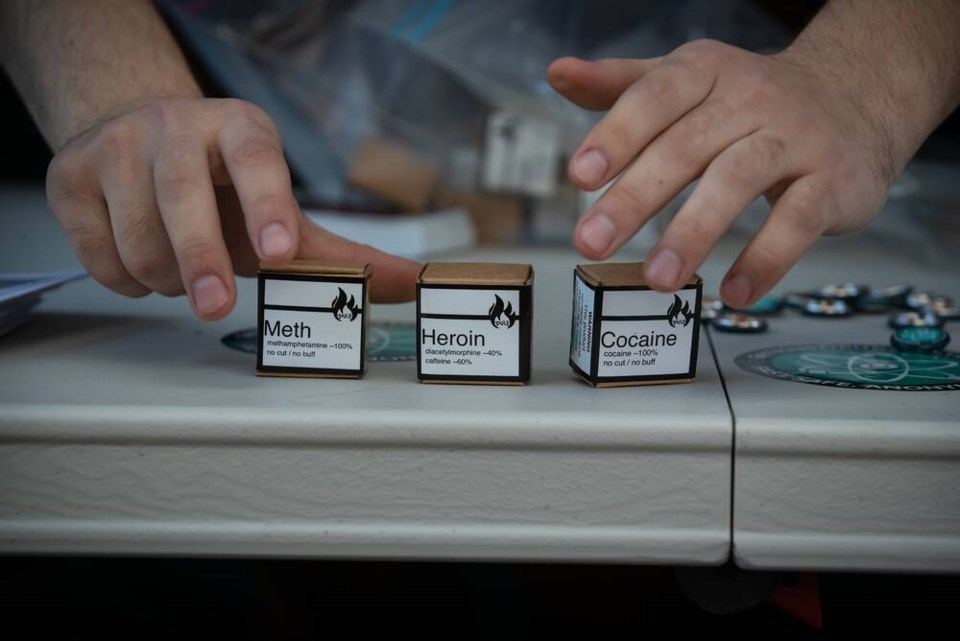There was an alternative move available to Premier David Eby two weeks ago when the issue of government-backed safe-supply advocacy groups who were buying drugs illicitly suddenly became a big deal.
He could have frankly acknowledged it as an example of how desperately acute the opioid crisis has become.
It would have been a lot more forthright than the bogus response that was cooked up. The drug user groups were as open and clear as possible about what they were doing. It appears to have been common knowledge in that world that the drugs being tested and supplied to users in an effort to reduce toxicity were being purchased illegally on the street.
Multiple websites broadcast the knowledge. The Economist magazine did a feature on it.
But when the story landed in the legislature, Eby concocted some consternation about the purported revelation.
“As soon as I was aware and the minister was aware that this organization was trafficking drugs and breaking the law, the instructions went out to the health authority to discontinue this group’s funding,” he said.
So a $200,000 contract the Drug User Liberation Front had to work with a health authority was terminated. Police later raided the office and arrested two people.
The idea they took immediate action on the basis of new information was further undermined Tuesday when the Northern Beat news site revealed that an all-party health committee of MLAs got some extensive briefings on the practice a full 17 months ago.
And the chair of the committee was Niki Sharma, who was then a parliamentary secretary but was named attorney general a few months later.
She presided over multiple public meetings in 2022 at which they delved deeply into safe supply.
Frank disclosures about the entire operation have been posted on the legislature’s website the entire time.
MLAs were told about compassion clubs formed to assist with safe supply.
“How does it operate?” Sharma asked at one meeting.
“It’s a members-only place … people pooling their resources perhaps to get a supply of what’s needed at a lower cost,” a witness told her.
They’d been doing activism and events for two years by then, trying to get clean drugs to people.
MLAs were explicitly told: “DULF is buying drugs from the dark web and having them checked … boxing them up and letting people know what they are.”
Sharma asked again about compassion clubs three months later, in September 2022.
A witness lauded DULF’s safe supply program. But another witness warned the MLAs: “The reality is that [DULF’s] drugs are tested, but they are still bought through the black market, and they still support organized crime.”
Sharma’s response as chair of the committee was: “All right. Any other comments?”
小蓝视频 United MLA Elenore Sturko said Wednesday it was shocking to learn how long the government has been aware of DULF’s activities.
Various ministers and the premier said they just learned in October, she said, but “no, it’s been 17 months the government was aware. I think that it’s misleading the public.”
小蓝视频 United MLAs sat through all the hearings as well, but Sturko said it wasn’t known at the time that DULF was getting government funding.
She said it is clear the government knew the operation failed to get a federal licence, knew the province was funding it and knew the drug buys were illegal. But it continued the funding and “then stood up in the legislature and said they had no ideas about it…”
It was obvious throughout the drugs were bought illegally. It was an unlicensed operation doing safe supply on a non-prescription basis. Where else could the drugs have come from?
Sturko said there is correspondence from the health authority that acknowledges there is no source other than an illicit one.
She said the quantities involved are significant.
She wrote to federal Mental Health and Addictions Minister Ya’ara Saks Wednesday expressing alarm that other organizations involved in the illegal enterprise get federal funding.
She cited a drug-checking operation at the University of Victoria that lists Health Canada as a funder, and asked for an audit and review.
UVic has said it had ethics board approval but it would be inappropriate to share confidential information.




